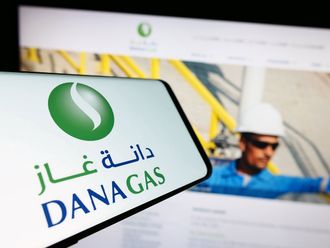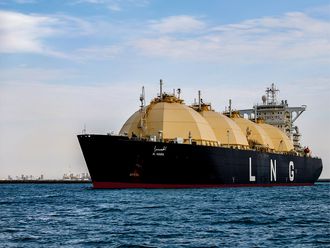Abu Dhabi: A pipeline to send the oil of the United Arab Emirates directly to the Indian Ocean instead of being shipped by tanker through the Strait of Hormuz, probably will be finished this year, said Mohammad Bin Dha'en Al Hameli, UAE Minister of Energy.
The $3.3 billion (Dh12 billion) pipeline to Fujairah aims to "bypass" the strait and will carry about 1.5 million barrels of oil a day, Al Hameli said in an interview in Washington.
The waterway is a choke point at the mouth of the Arabian Gulf for a fifth of the world's oil supplies. Iran has threatened to block the strait if attacked because of its nuclear programme.
Not to pressurise
While the UAE is confident the strait will remain open to tankers, the purpose of the pipeline is "to really not put too much pressure on the ships coming into the Gulf," Al Hameli said.
The UAE is the fourth-largest crude producer in the Organisation of Petroleum Exporting Countries, which meets next on October 14 in Vienna.
Al Hameli declined to comment on whether Opec members would agree at the meeting to raise or lower oil production levels.
In a speech to an energy conference in Washington, Al Hameli said current world oil prices aren't high when measured against higher exploration and production costs. "The age of easily accessible oil is coming to an end," Al Hameli said.
"Oil prices are not high at all" while "the costs of oil exploration and production have exponentially increased."
Oil-rich nations aware of their responsibilities
UAE's Minister of Energy Mohammad Bin Dha'en Al Hameli has said that the countries blessed with huge reserves of oil and gas — such as the UAE — were aware of their responsibility in securing reliable and continuous supplies to consuming countries.
Addressing a session of the Washington Energy Summit 2010 on Thursday, Al Hameli said: "In practice, this translates into an obligation to make mutli-billion dollar investments, often without any assurance that there will be a market for the increment production."
He said that recently, there were some complaints that oil prices were too high, but viewed from the perspective of high investments required to have additional production capacity they are not high at all.
"When oil prices in 2008 fell to $35 a barrel, it was well below the level needed to cover the marginal costs of many projects — effectively stalling the exploration of new frontiers and the development of new discoveries."












